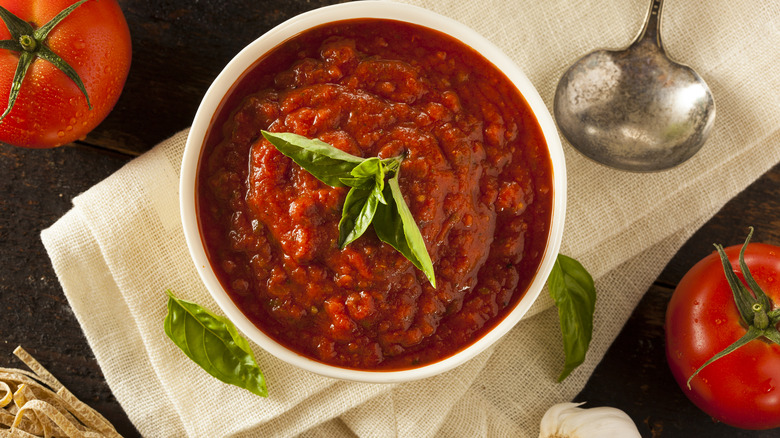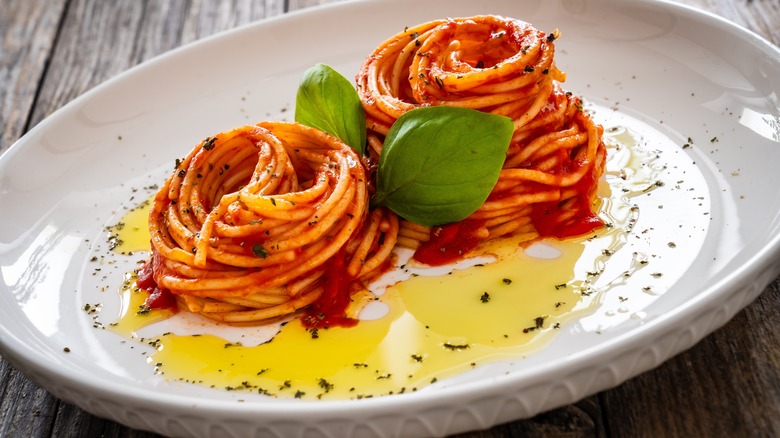A Chef's Argument For The Humble Marinara Sauce
Italian food's wide-reaching appeal is easy to understand. The cuisine focuses on a small selection of ingredients — often less than eight in a single recipe — but emphasizes ingredient quality and a fine-tuned balanced palate. An especially delicious showcase of such humble culinary construction is marinara sauce. While commonly confined to jars in the United States, the fresh rendition is lighter, brighter, and bursting with flavor (though easily ruined with a simple mistake). It's a sauce that comes together quickly but is surprisingly versatile, both delicious on its own and useful as an ingredient in other dishes.
If there's one person to vouch for marinara's many compelling merits, it's Chef Jasper J. Mirabile Jr. In addition to hosting "Live! From Jasper's Kitchen Radio," he's also the third-generation owner and chef of Jasper's Restaurant in Kansas City, Missouri. Answering exclusive questions from Chowhound, he spoke about marinara's importance in the kitchen.
"We use it every day in our restaurant," Chef Mirabile said, adding that marinara "has become very popular because many people are looking for a lighter sauce." As a result, he employs its freshness as the perfect coating for pasta but also incorporates it into vodka and other cream sauces, as well as seafood dishes. It's quite an impressive (not to mention superbly flavorful) range for the underappreciated sauce.
Marinara sauce offers a vibrant, easy-to-use tomato flavor
While they may look similar, there is a difference between marinara and tomato sauce. The former focuses on extra-fresh flavors, typically with just a few seasonings. Chef Mirabile follows such a style, sharing that his rendition "is prepared with Italian tomatoes, olive oil, garlic, and a touch of red pepper only." It's a combination of ingredients that's quick to assemble. As he pointed out, "We cook it for less than 30 minutes." Made fresh daily, it pays off in dividends, delighting diners with a deep yet tartly sweet tomato flavor from its straightforward assembly.
Additionally, the magic of the sauce lies not only in the quality of ingredients, but in nailing the consistency. Preparing it to a thicker texture — without overcooking and destroying its freshness — allows the marinara to better function as a foundation for other dishes like chicken parmigiana. However, if you're keeping things simple, Chef Mirabile has two favorite, very different noodles to serve with your sauce: "We keep it very simple by using fettuccine or rigatoni." Of the marinara, he noted that "It really adheres to the pasta and makes for a great pairing." If you're determined to follow in his footsteps, remember to combine your pasta with sauce the right way.

